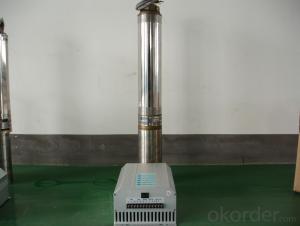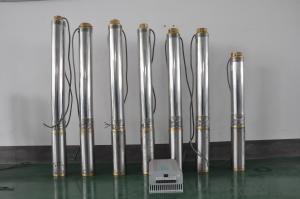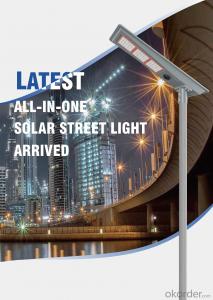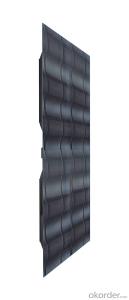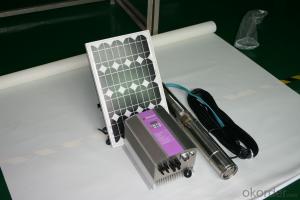Solar Water Pump
- Loading Port:
- China Main Port
- Payment Terms:
- TT OR LC
- Min Order Qty:
- -
- Supply Capability:
- -
OKorder Service Pledge
OKorder Financial Service
You Might Also Like
Item Description :
This superb new addition to our solar fountain range comes with a 10w solar panel,and a powerful fountain pump that is capable of producing fountains of up to 2m in height. As well as being easy to set up and use.Instruction manual is supplied for assembly and maintenance.
Solar Fountain Key Features :
Powered by direct sunlight
No high voltage electric mains required
Safe for children
Max. height of fountain: 2M
Max. flow capacity: 800 L/H(176 GAL)
10W Polycrystalline solar panel included
18V DC brushless pump
Solar Pump Features :
Can produce fountains up to : 2M (tube height) 1.4M (fountain height)
Comes with multiple nozzle accessories
Cable Length : 5M
Solar Panel Features :
10W peak power.
Polycrystalline highly efficient solar panel
Comes mounted in aluminium frame
Comes with ground stake and rotating knob so you can angle your panel toward the sun
What You Will Get :
10W solar panel
Solar pump
Ground Sake
Nozzle accessories
Precautions :
DO NOT alter or change the product itself or its components
Operate pump in freshwater only, never above 50 degrees celsius
Keep away from flammable liquids
Do not connect to any other power supply other than the included
- Q:Can solar pumps be used for water supply in construction sites or building projects?
- Yes, solar pumps can definitely be used for water supply in construction sites or building projects. Solar pumps are designed to operate using solar energy, which makes them ideal for remote locations or areas with limited access to electricity. They can efficiently pump water from sources like wells, rivers, or lakes, providing a reliable and sustainable water supply for various construction needs such as concrete mixing, dust control, or general site cleaning. Additionally, solar pumps are environmentally friendly and cost-effective, as they require minimal maintenance and have no fuel or electricity expenses.
- Q:How do I determine the water requirements for my application?
- To determine the water requirements for your application, there are a few factors you need to consider. Firstly, assess the specific needs of your application. Determine how much water is required for each process or task involved. This could include factors such as cleaning, cooling, or mixing. Next, evaluate the water quality needed for your application. Some processes may require purified or distilled water, while others may be suitable for regular tap water. Understanding the required water quality will help you determine the necessary treatment or filtration processes. Consider the water pressure and flow rate required for your application. Certain processes may require high-pressure water jets or a continuous flow of water. Ensure that the water supply can meet these requirements. Additionally, assess the availability and accessibility of water in your location. Consider factors such as the source of water, its availability throughout the year, and any restrictions or regulations related to water usage in your area. It is also important to consider the environmental impact of your water usage. Evaluate the sustainability and conservation measures that can be implemented to minimize wastage and reduce the overall water footprint of your application. Lastly, consult with experts or professionals in the field who can provide guidance based on their experience and knowledge. They can help you determine the specific water requirements for your application and suggest any necessary equipment or technologies to meet those requirements. By considering these factors and seeking expert advice, you can effectively determine the water requirements for your application and ensure that you have an adequate and sustainable water supply.
- Q:Can a solar pump be used in conjunction with a battery storage system?
- Yes, a solar pump can be used in conjunction with a battery storage system. The solar panels can be used to power the pump during the day, and any excess energy generated can be stored in batteries for use during the night or when sunlight is not available. This combination ensures a continuous water supply even when solar energy is not being generated.
- Q:Are solar pumps noisy?
- No, solar pumps are not noisy. They operate quietly and do not produce any noticeable noise during their operation.
- Q:Can solar pumps be used for water supply in golf courses or sports facilities?
- Yes, solar pumps can be used for water supply in golf courses or sports facilities. Solar pumps are a sustainable and cost-effective solution for irrigation systems, providing a reliable water supply for maintaining the greenery and overall maintenance of such areas. These pumps utilize solar energy to power the pumping mechanism, making them environmentally friendly and reducing operating costs in the long run.
- Q:Can a solar pump be used for solar water heating systems?
- No, a solar pump cannot be used for solar water heating systems. While both solar pumps and solar water heating systems use solar energy as a power source, they serve different purposes. A solar pump is specifically designed to pump water from a well or other water source using solar energy. It is commonly used for irrigation, water supply in remote areas, or circulation of water in swimming pools. On the other hand, a solar water heating system uses solar energy to heat water for domestic or commercial use. It typically consists of solar collectors that absorb sunlight and transfer the heat to water, which is then stored in a tank for later use. These systems do not require a pump to circulate the water, as the heat transfer occurs naturally through convection. Therefore, while both solar pumps and solar water heating systems harness solar energy, they have different functions and cannot be used interchangeably.
- Q:Can a solar pump be used in areas with limited access to local dealers or distributors?
- Yes, a solar pump can be used in areas with limited access to local dealers or distributors. Solar pumps are designed to operate independently of grid electricity and can be installed in remote areas where access to traditional power sources may be limited. These pumps use solar energy to power their operation, eliminating the need for a direct connection to power lines or a local distributor. With proper installation and maintenance, solar pumps can provide a reliable and sustainable water pumping solution in areas that lack access to traditional distribution networks.
- Q:Can a solar pump be used in areas with high levels of iron in the water?
- Yes, a solar pump can be used in areas with high levels of iron in the water. However, it is important to note that high iron content in water can lead to clogging and corrosion in the pump system. Therefore, additional filtration and maintenance measures may be required to ensure the pump's optimal performance and longevity in such areas.
- Q:Can a solar pump be used for groundwater extraction?
- Yes, a solar pump can be used for groundwater extraction. Solar pumps are commonly used in remote areas where access to electricity is limited. They harness solar energy to power the pump, allowing for sustainable and efficient extraction of groundwater.
- Q:Can a solar pump be used for water supply in coffee plantations?
- Yes, a solar pump can be used for water supply in coffee plantations. Solar pumps are an efficient and sustainable solution for providing water to agricultural areas, including coffee plantations. They can harness solar energy to power the pump, eliminating the need for grid electricity or fuel. This makes them cost-effective and environmentally friendly, while ensuring a reliable water supply for irrigation and other water needs in coffee plantations.
1. Manufacturer Overview |
|
|---|---|
| Location | |
| Year Established | |
| Annual Output Value | |
| Main Markets | |
| Company Certifications | |
2. Manufacturer Certificates |
|
|---|---|
| a) Certification Name | |
| Range | |
| Reference | |
| Validity Period | |
3. Manufacturer Capability |
|
|---|---|
| a)Trade Capacity | |
| Nearest Port | |
| Export Percentage | |
| No.of Employees in Trade Department | |
| Language Spoken: | |
| b)Factory Information | |
| Factory Size: | |
| No. of Production Lines | |
| Contract Manufacturing | |
| Product Price Range | |
Send your message to us
Solar Water Pump
- Loading Port:
- China Main Port
- Payment Terms:
- TT OR LC
- Min Order Qty:
- -
- Supply Capability:
- -
OKorder Service Pledge
OKorder Financial Service
Similar products
New products
Hot products
Hot Searches
Related keywords
